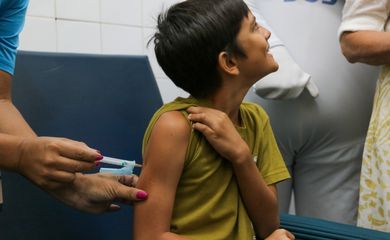Brazil doubles yellow fever vaccine production capacity

The Oswaldo Cruz Foundation's Institute of Immunobiological Technology (Bio-Manguinhos/Fiocruz) has doubled its production capacity for the yellow fever vaccine, increasing from 60 million to approximately 120 million vials a year.

Brazil’s national drug regulator Anvisa authorized the new production capacity this month. This increase was made possible by removing antibiotics from the vaccine formula and optimizing the Active Pharmaceutical Ingredient (API) production process.
Rosane Cuber, Bio-Manguinhos' deputy director of quality, informed Agência Brasil this week that the institution has been supplying this vaccine not only to Brazil but also exporting it to over 70 countries through United Nations (UN) agencies.
Cuber explained that the viral vaccine's potency is determined by the concentration of the virus in its formulation. She noted that the challenge for researchers was to increase the virus quantity while using the same number of eggs. "We accomplished this through a study where we adjusted the vaccine's dilution percentages. By altering the dilution parameters and evaluating viral concentration through various studies, we achieved an optimal balance. This allowed us to maintain the egg quantity but change the dilution factor, resulting in higher viral production," she explained.
Antibiotics
In addition to adjusting the virus concentration, Bio-Manguinhos made another improvement by removing antibiotics from the vaccine. This change was initiated at the request of the World Health Organization (WHO), which is actively working to reduce the widespread use of antibiotics globally, in response to rising levels of bacterial resistance.
The antibiotic has been used for decades to prevent vial contamination, but Fiocruz has confirmed that current sterilization practices make its use unnecessary. Fiocruz also stated that removing the antibiotic does not compromise the safety or effectiveness of the vaccine.
Rosane Cuber further explained that numerous real-time stability studies were conducted because the vaccine, following the modification, requires monitoring for its 36-month shelf life. "We implemented all these changes, monitored the timeline, and submitted the modifications to Anvisa, which approved them this February."
Consequently, Bio-Manguinhos is now able to commence production of new API batches incorporating two key improvements: the elimination of antibiotics from the formulation and an adjustment in dilution to achieve a greater vaccine yield using the same quantity of eggs. "This enhances our API production capacity," stated the deputy director.
Production of the new viral pharmaceutical ingredient will start this year and could be available in 2025. Rosane explained that while there is still a stock of API produced with the previous formulation, the subsequent batches will already be produced with the new formulation.
"The ministry can place an order for the vaccine, and we will be able to deliver it without any restrictions. We can also deliver it to the United Nations, for example. There are no longer any restrictions on the production of active pharmaceutical ingredients," she noted.



